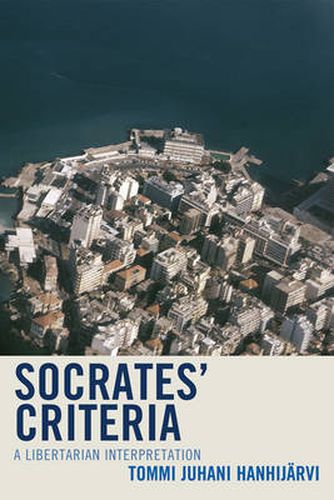Readings Newsletter
Become a Readings Member to make your shopping experience even easier.
Sign in or sign up for free!
You’re not far away from qualifying for FREE standard shipping within Australia
You’ve qualified for FREE standard shipping within Australia
The cart is loading…






This title is printed to order. This book may have been self-published. If so, we cannot guarantee the quality of the content. In the main most books will have gone through the editing process however some may not. We therefore suggest that you be aware of this before ordering this book. If in doubt check either the author or publisher’s details as we are unable to accept any returns unless they are faulty. Please contact us if you have any questions.
The philosophical puzzle about the position of Socrates in the early Platonic dialogues is the reason why Socrates demands that terms be defined. Many have said recently that knowledge and meaning do not demand definitions, for there is know-how besides intellectual knowledge and the successful use of symbols is often unreflective. This book’s argument is that for Socrates, freedom, or rational agency, requires definitions. Socrates is freedom’s advocate; he is not an early epistemologist or semanticist. Due to this, he is still relevant to current philosophy. Certain recursive or performative acts of definition are free in being fully conscious, deliberate, or self-sufficient. They are self-predicating Forms. The search for them is free in a different sense, namely in relating to everything beyond itself. Moreover, that search is moral. For being self-relational, the Forms are not identifiable from without. They could be anywhere and so must be sought everywhere. Anyone could turn out to be one’s liberator, so one must respect each of one’s interlocutors, as Socrates does when asking questions.
$9.00 standard shipping within Australia
FREE standard shipping within Australia for orders over $100.00
Express & International shipping calculated at checkout
This title is printed to order. This book may have been self-published. If so, we cannot guarantee the quality of the content. In the main most books will have gone through the editing process however some may not. We therefore suggest that you be aware of this before ordering this book. If in doubt check either the author or publisher’s details as we are unable to accept any returns unless they are faulty. Please contact us if you have any questions.
The philosophical puzzle about the position of Socrates in the early Platonic dialogues is the reason why Socrates demands that terms be defined. Many have said recently that knowledge and meaning do not demand definitions, for there is know-how besides intellectual knowledge and the successful use of symbols is often unreflective. This book’s argument is that for Socrates, freedom, or rational agency, requires definitions. Socrates is freedom’s advocate; he is not an early epistemologist or semanticist. Due to this, he is still relevant to current philosophy. Certain recursive or performative acts of definition are free in being fully conscious, deliberate, or self-sufficient. They are self-predicating Forms. The search for them is free in a different sense, namely in relating to everything beyond itself. Moreover, that search is moral. For being self-relational, the Forms are not identifiable from without. They could be anywhere and so must be sought everywhere. Anyone could turn out to be one’s liberator, so one must respect each of one’s interlocutors, as Socrates does when asking questions.